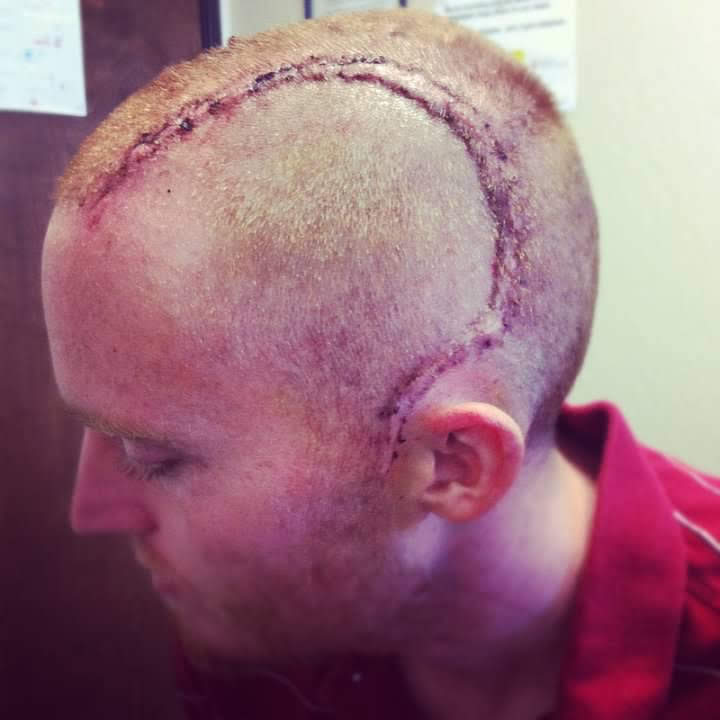One man’s struggle with seizures is silenced thanks to a medical device implanted on his brain.
Andy Fiannaca, a college student at the time, first discovered he had epilepsy when he woke up in an ambulance. His head was gouged and bleeding—the result of falling during an intense epileptic seizure. Even with no family history of epilepsy, Fiannaca would soon learn that is exactly what he had.
For years, severe daily seizures affected his quality of life, limiting his activities. He experienced speech problems, such as difficulty finding and forming words, and would often lose the ability to comprehend what people around him were saying, known as aphasia. Everything became a foreign language.
Fiannaca also suffered from the “Alice in Wonderland” syndrome. During episodes, his visual perception would become drastically distorted. He was either an ant looking up at giants, or a giant looking down at ants. Driving a car was out of the question, and continuing his studies at the University of Nevada, Reno became increasingly difficult.
To control his seizures, Fiannaca tried six different medications and then a surgery in which a series of shallow cuts were made in his brain tissue. The goal was to remove the part of the brain where his seizures originated. Unfortunately, his Reno surgeons found the source was too close to his speech center. His symptoms improved after the surgery, but within two years they returned.
Clearly, Fiannaca required more advanced help. But since he lives in Sparks, Nev. (outside Reno), where this level of advanced neurology is not available, his care team finally referred him to California Pacific Medical Center (CPMC) in San Francisco, part of the Sutter Health not-for-profit network of care.
At CPMC, neurologists David King-Stephens, MD and Peter Weber, MD, recommended the RNS System, an implanted device designed to continuously monitor brain activity, detect abnormal patterns and intervene to stop seizures before clinical symptoms appear. It is the first and only medical device that can monitor and respond to brain activity. This treatment, Fiannaca says, ultimately changed the course of his life.

Since Fiannaca had the RNS device implanted six years ago, his seizures have radically reduced. He hasn’t had a grand mal seizure in two years, and he’s finally able to drive a car again. His wife Sara has been by his side through it all. The couple worried for a long time that epilepsy would prevent them from starting a family, but with his condition now under control, Fiannaca and Sara welcomed their first child 18 months ago.
Epilepsy is a widespread condition characterized by recurrent seizures that often causes a severe impact on a person’s quality of life. It affects as many as one in 26 adults in the U.S., and in 50 percent of epilepsy cases, the cause is unknown.
Epilepsy Awareness Day is March 26, 2020.





